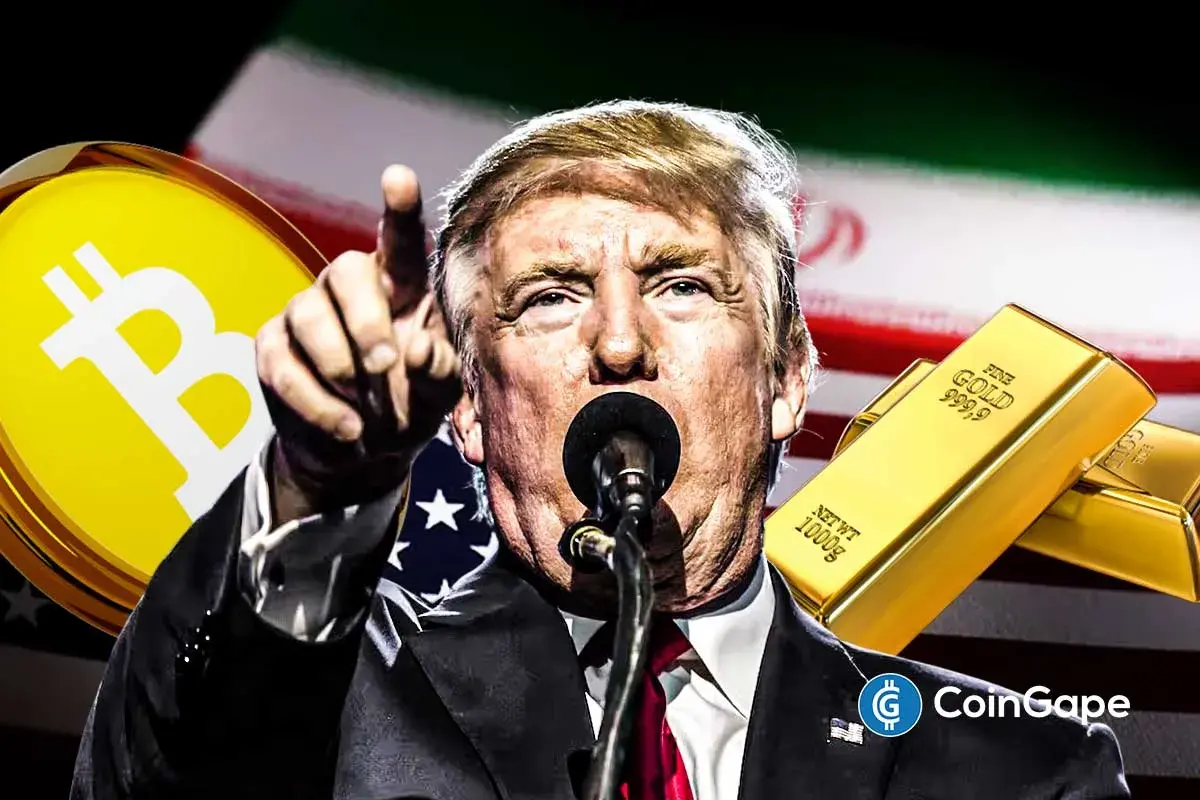Can the US Nationalize Strategy For Strategic Bitcoin Reserve? Experts Weigh In

Highlights
- Experts debate nationalizing firms to establish a US Strategic Bitcoin Reserve plan.
- Keiser and Alden clash over Bitcoin reserve strategy and national security implications.
- Texas signed its strategic Bitcoin reserve into law last month.
Recent discussions on social media have sparked debates about whether the United States could nationalize companies to build a strategic Bitcoin reserve. The idea gained traction after posts from financial experts Lyn Alden and Max Keiser, who shared contrasting views on the topic.
Analysts Clash Over Strategic Bitcoin Reserve as Fears of a Global “Hash War” Emerge
Lyn Alden, a well-known analyst, warned that nationalizing a company could signal a country’s disregard for property rights. She suggested this might make investors hesitant to put money into that nation for decades.
Her X post reflects concerns about economic stability and trust in government actions. On the other hand, Max Keiser, a prominent cryptocurrency advocate, presented a different perspective.
He responded to Willy Woo’s idea of creating a strategic Bitcoin reserve, which includes bold moves like selling gold reserves. Keiser imagines a scenario where Russia and China acquire 1 million BTC.
He argues that such a move will push the US to seize private firms like MicroStrategy (MSTR) or Riot Blockchain (RIOT) for national security. In his X post, Keiser highlights the potential for a “Hash War” if such actions occur.
Experts Debate US Bitcoin Strategy as Calls to Nationalize MSTR Stir Controversy
In an earlier X post, Willy Woo, a crypto analyst, outlined a detailed playbook for this strategy. He proposed revaluing the gold strategic reserve to market price and selling it for cash.
Then, he suggested nationalizing MSTR during a bear market when its market value is low. He argued that this approach could help the US build a strategic Bitcoin reserve to counter global competitors.
The idea of nationalizing private companies for a strategic Bitcoin reserve raises big questions. No official policy supports this plan yet, but the discussion shows how seriously some experts view Bitcoin’s future.
With opinions split, the feasibility of such a strategy remains unclear. It’s a topic that could shape economic policies in the coming years, depending on how the debate evolves.
For now, the conversation reflects a growing interest in cryptocurrency’s role in global finance. Whether the US will pursue this path or stick to traditional reserves is still up in the air.
The implementation of a strategic Bitcoin reserve continues to gain traction among states in the US and other nations. For instance, Texas signed its strategic Bitcoin reserve into law last month.
Play 10,000+ Casino Games at BC Game with Ease
- Instant Deposits And Withdrawals
- Crypto Casino And Sports Betting
- Exclusive Bonuses And Rewards

- CFTC Chief Mike Selig Signals US Crypto Perpetual Futures Rollout in Coming Weeks
- Fed Rate Cut Odds Drop as Inflation Fears Rise Due To U.S. Iran Conflict
- Here’s Why Tether Gold (XAUt) Price Is Falling Even With Growing Gold Demand
- XRP News: Ripple Expands Payments Platform To Unify Fiat and Stablecoins Globally
- U.S.–Iran War: Bitcoin Price Extends Decline as Oil Prices Surge To Two-Year High
- Gold Price Prediction March 2026: Rally, Crash, or Record Highs?
- RIOT Stock Prediction as Needham, Piper Sandler Slash Target After Earnings
- Cardano Price Outlook As Charles Hoskinson Warns Over CLARITY Act
- Circle Stock Price Climbs 15% to $96, Can Rally Continue in March 2026?
- Bitcoin Price Prediction as US-Iran War Enters 4th Consecutive Day
- Top 5 Historical Reasons Dogecoin Price Is Not Rising

 Buy $GGs
Buy $GGs

















